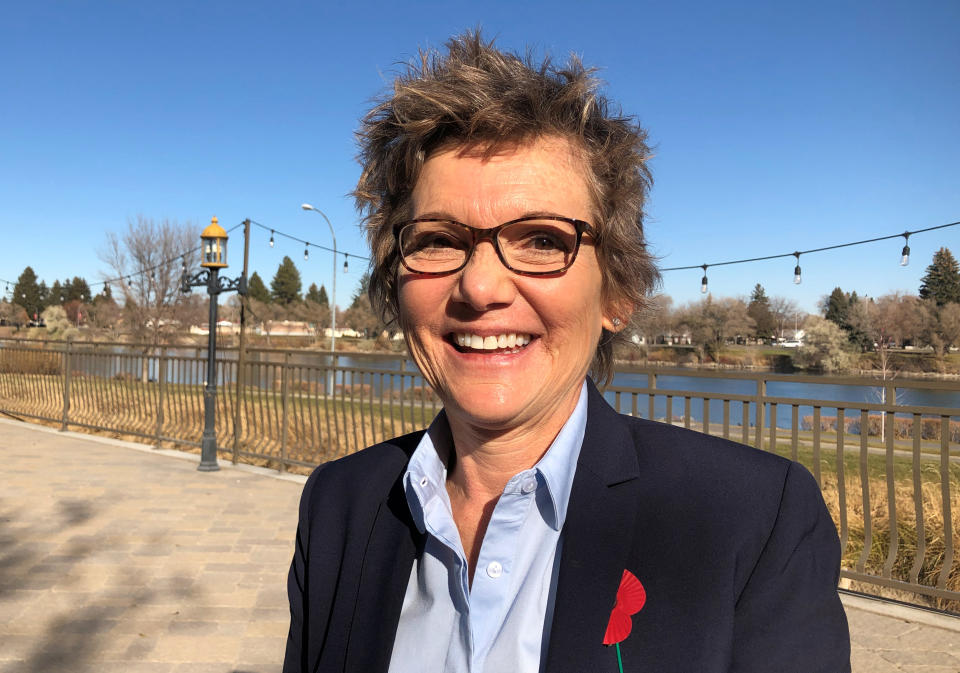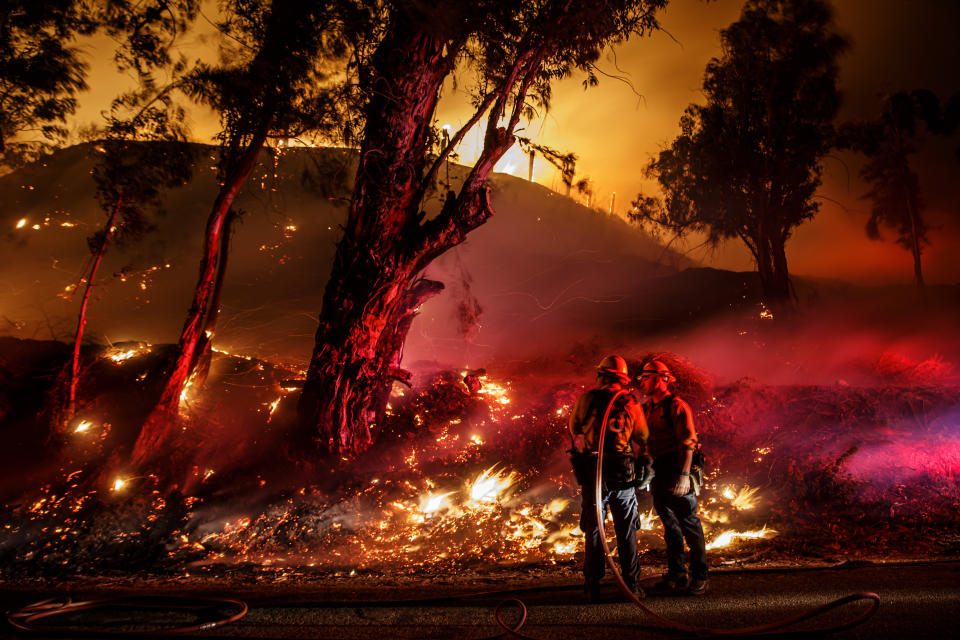Federal Reserve officials say they 'can't afford to ignore' climate change
The Federal Reserve kicked off its first ever conference focused on climate change Friday, as the world’s largest central bank considers the impact of extreme weather on the U.S. economy.
The conference is being hosted by the Federal Reserve Bank of San Francisco and includes attendees from universities and central banks all over the world. San Francisco Fed President Mary Daly urged policymakers and academics to consider the impact of climate change on three key Fed responsibilities: payments, financial stability, and monetary policy.
“When you put all these pieces together, it becomes pretty clear: climate change is an economic issue we can’t afford to ignore,” Daly said in opening remarks at the conference.

On dock at the conference: papers addressing the impact of warmer temperatures on labor supply, the implications of pollution on proper interest rate policy, and the possibility of an oil run as a result of climate policy.
Daly said severe weather events could disrupt access to cash and cause financial losses to insurers and banks, which relate to the Fed’s responsibilities as a payment system provider and financial regulator, respectively.
On monetary policy, Fed Governor Lael Brainard said Friday at the conference that the increasing “frequency of heat waves” could have important effects on output and labor productivity. Brainard also said rising insurance premiums and investments into precautionary “adaptations” (like air conditioning and home elevations) could affect economic activity and inflation.
“Just on its own, the large amount of uncertainty regarding climate-related events and policies could hold back investment and economic activity,” Brainard said.

Daly said she has already seen the impacts in her own district, which covers the West Coast, Alaska, and Hawaii. In California, Daly pointed to the pre-emptive power outages and wildfires in populated areas as real-world examples of serious climate risk.
“What we’ve noticed is that temperatures are rising and severe weather events are more frequent and they’re larger,” Daly told reporters at a separate event in New York on Monday. “Then it becomes prudent for us to consider what the fallout from the economy is.”
And Brainard acknowledged that the PG&E (PCG) bankruptcy in California could be considered a “climate change bankruptcy.”
Fed attention
Fed officials note that although this is the first ever conference centered on climate change, researchers have been looking at the issue for years.
At the Federal Reserve Bank of Richmond, economist Toan Phan published a brief last August warning that rising global temperatures would have a more adverse effect on the U.S. economy than originally thought.
Phan, in addition to three other researchers, challenged existing research arguing that economic damage would be limited to agricultural sectors or developing economies. Using data projecting a theoretical scenario where high-emissions lead to faster rising temperatures, the authors predict that U.S. GDP growth could lose up to 1.2 percentage points.
They also find that particularly warmer weather in the summer tends to have a negative impact on labor productivity on industries once thought to be insulated from climate change, such as the finance and real estate industries.
“[T]he consequences of higher temperatures on the U.S. economy may be more widespread than previously thought,” the authors wrote.

Phan told Yahoo Finance that Fed researchers are always thinking about structural changes that could affect the central bank’s thinking on economic conditions. Just as the Fed pays attention to changing income distribution, market concentration, demographics, or emerging economies, Phan says climate change should be considered because it could be just as impactful.
“One of those very important and obvious trends is the changing distribution of weather variables and climate change,” Phan told Yahoo Finance. “It’s very natural that the Fed is paying attention to this topic right now.”
In San Francisco Friday, discussants are directly asking if there are ways monetary policy could counter negative effects from climate change. Consider a paper from Carnegie Mellon University’s Nicholas Muller, projecting that economies with more pollution may require lower interest rates to compensate for reduced labor force and productivity because of health issues.
Fed officials acknowledge that some may be questioning why the central bank is looking into climate change. But Daly told reporters Monday that examining these issues is key to ensuring a stable U.S. economy.
“I don’t see that as anything outside of our mission, in fact I think that’s squarely in our mission,” Daly said.
Brian Cheung is a reporter covering the banking industry and the intersection of finance and policy for Yahoo Finance. You can follow him on Twitter @bcheungz.
SF Fed's Daly: No more rate cuts unless there's a 'material change'
Fed's Powell: 'Plenty of risk' remains despite phase one trade deal
‘The weirdest place in the world’: What the Fed missed in Jackson Hole
Read the latest financial and business news from Yahoo Finance
Follow Yahoo Finance on Twitter, Facebook, Instagram, Flipboard, SmartNews, LinkedIn, YouTube, and reddit.

 Yahoo Finance
Yahoo Finance 
